Introduction to Graphs Class 8 Worksheet Maths Chapter 13
Multiple Choice Questions
Q1: In which quadrant does the point s(−3,2) lie?
(a) II
(b) I
(c) III
(d) IV
Ans: (a)
Q2: On which axis does the point (0,−6) lie
(a) x− axis
(b) y− axis
(c) origin
(d) None of these
Ans: (b)
Q3: Perpendicular distance of the point (2,3) from x− axis is
(a) 2
(b) 3
(c) 0
(d) None of these
Ans: (b)
Q4: The co-ordinates of origin is
(a) (x,0)
(b) (0,y)
(c) (0,0)
(d) None of these
Ans: (c)
Answer the following questions
Q1: The point where x− axis and y− axis meet is called __________?
Ans: Origin
Q2: A pictorial representation of data in the form of rectangular bars to show comparison among categories is called __________?
Ans: Bar graph
Q3: What is a pie graph?
Ans: Data can be represented by dividing a circle into sectors. This type of representation of data is called a pic graph. It shows us the relation of parts to the whole.
Q4: Find the co-ordinates of the points A, B, C, D from the graph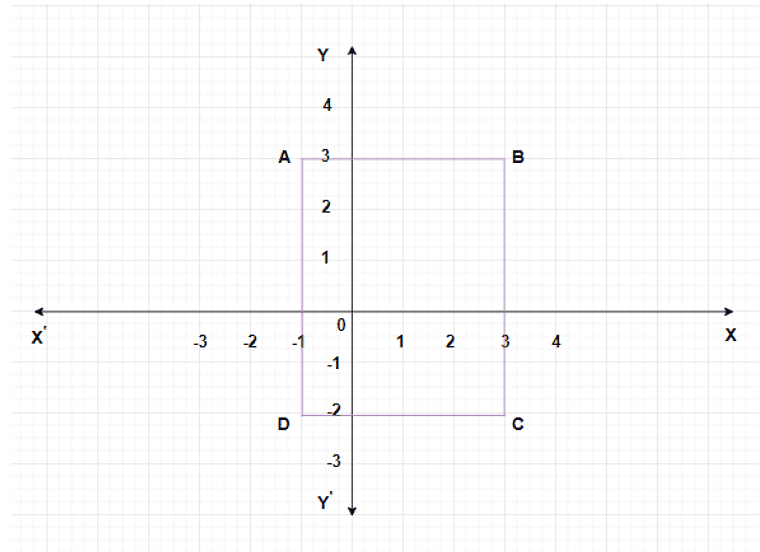
Ans: The co-ordinates of the point
A=(−1,3)
B=(3,3)
C=(−2,3)
D=(−1,−2)
Q5: If a man moves 6 units right due (east) from point A, then find the co-ordinates of his new position.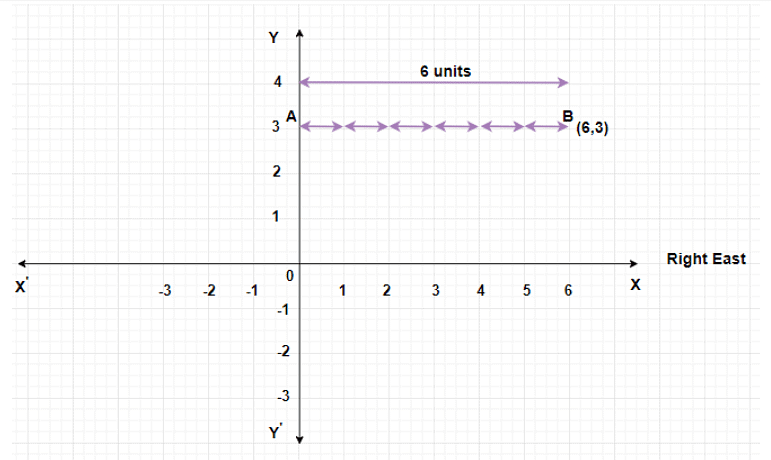 Ans: The position of point A=(3,0) If a man moves 6 units right from point A then new position of man will be at B=(6,3).
Ans: The position of point A=(3,0) If a man moves 6 units right from point A then new position of man will be at B=(6,3).
Q6: In a class of 40 students, the marks obtained in maths subject (out of 50) are as given below
Draw histogram.
Ans: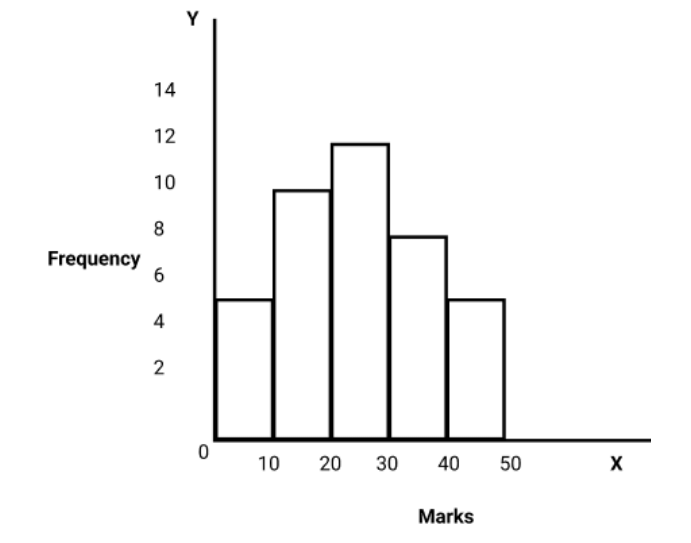
Q7: Find the time taken by a body to cover 30 meters. Hence find speed?
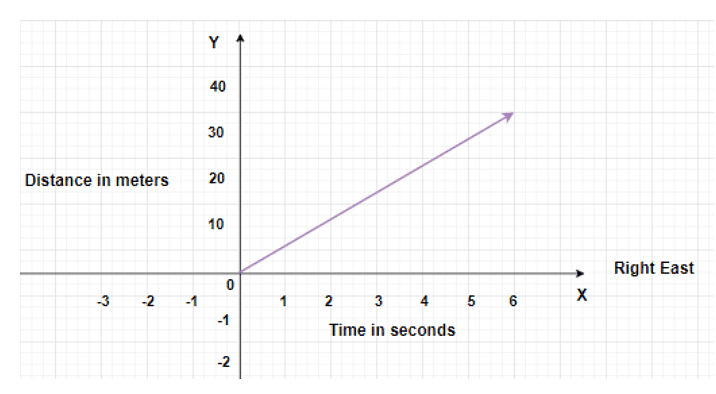 Ans: Time taken to cover a distance of 30m=6 seconds
Ans: Time taken to cover a distance of 30m=6 seconds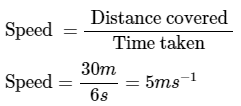
Q8: Plot the following points. Verify if they lie on a line? (1,3), (2,3), (3,3), (4,3)
Ans: We plot the given point on a graph to check if they lie on line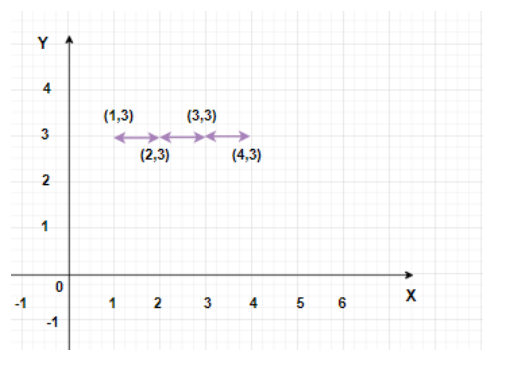 Yes, they lie on a line.
Yes, they lie on a line.
Q9: Draw a line passing through (3,1) and (1,3). Find the co-ordinates of the points at which this line meets the x− axis and y− axis.
Ans: The co-ordinates of the point on x− axis and y− axis is where the line meets axes.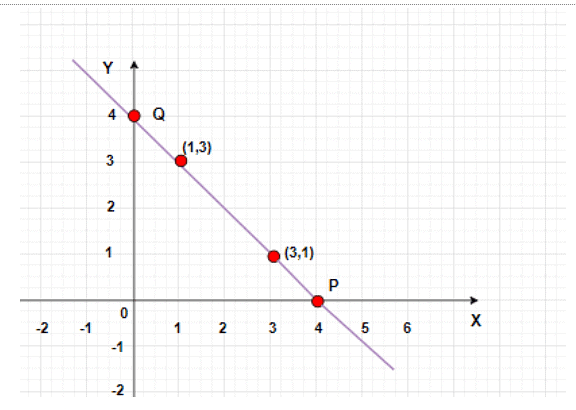 x− axis, P=(4,0)
x− axis, P=(4,0)
y− axis, Q=(0,4)
Q10: Following graph gives the movement of a car from a town A to town D. Study the graph and answer the following questions:
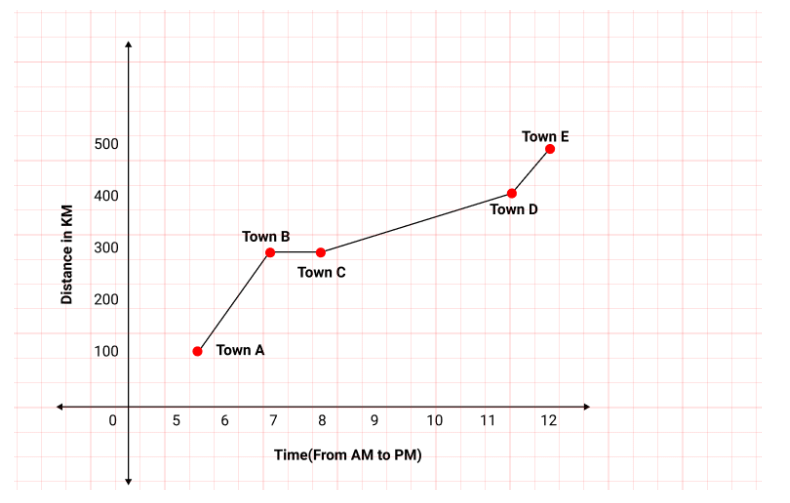
(a) What is the distance between town A and town D ?
Ans: A=(5.5,100)=(X1,Y1)
D=(11.5,500)=(X2,Y2)
(b) At what time did car start from town A?
Ans: Car starts from town A by 5:30 am.
(c) Where did the car stop and for what duration?
Ans: Car stopped at town B by 1 hour duration.
Q11: Plot the points A(4,0) and B(0,3) on the graph. Also find the length of hypotenuse of triangle AOB
Ans: OA=x− co-ordinate of point A=4
OB=y− co-ordinate of point B=3
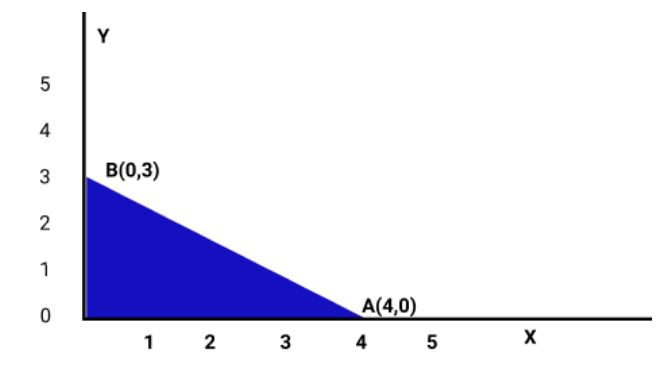
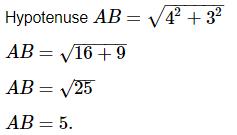
Q12: Make a table of values for the function y=4x, From the table find the value's of y when x=4 and x=5
Ans: y=4x At x=4, y=4(4)=16
At x=4, y=4(4)=16
x=5, y=4(5)=20
Q13: State true or false
(a) A point whose x−co-ordinates is zero and y− co-ordinates is non-zero will lie on the y−axis
(b) The co-ordinates of the origin are (0,0)
(c) A point whose y−co-ordinates is zero and x− co-ordinates is 4 will lie on the y−axis
Ans:
(a) True
(b) True
(c) False
Q14: From the given graph, compute the difference between the sales of 2013 and 2015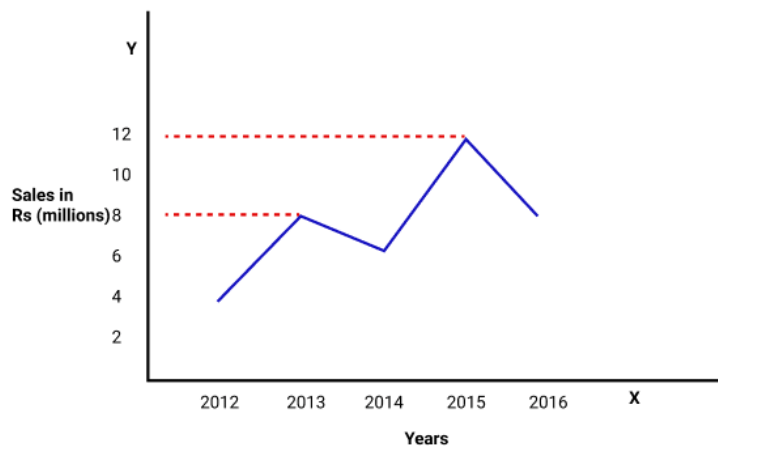 In which year sales are high?
In which year sales are high?
Ans: Sales in 2015−12 million
Sales in 2013−8 million
The difference between the sales in 2015 and 2013
=12−8=4 million
In 2015 the sales are high.
Q15: Draw the histogram to represent the following data and define linear graph.
Ans: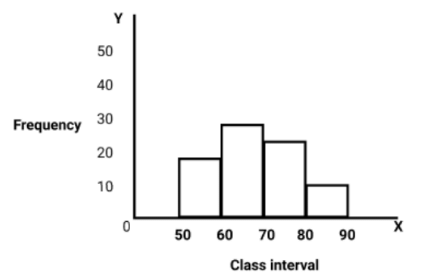
A line graph which is a whole unbroken line is called a linear graph.
Q16: Plot the points A(2,3), B(5,3), C(5,5) and D(2,5) on graph. Connect the points in that order. So as to get a closed figure ABCD . What type of figure do you get?
Ans:
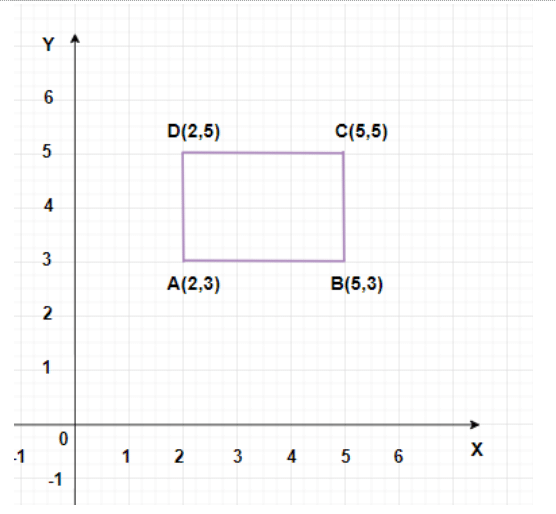 The figure ABCD obtained is a rectangle.
The figure ABCD obtained is a rectangle.
Q17: Reena deposited Rs12,000 in a bank at the rate of 10% per annum. Draw a linear graph showing the relationship between the time and simple interest. Also find the simple interest for 4 years.
Ans: P=12,000
R=10%
Simple interest for one year =


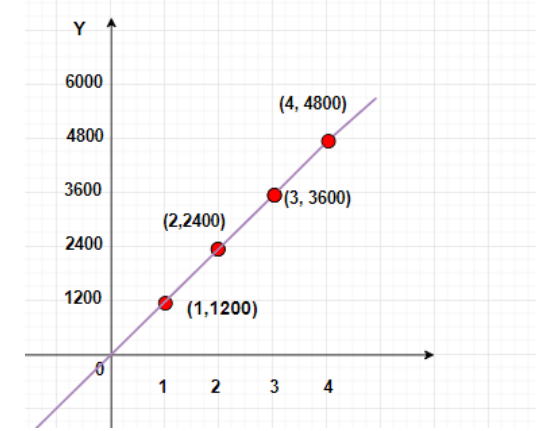 Simple interest after 4 years is 4800.
Simple interest after 4 years is 4800.
Q18: Hundred students from a certain locality use different modes of travelling to school as given below. Draw a bar graph which is maximum mode of travel?
Ans: Scale: on x− axis 1cm=1 unit
On y− axis 1cm=8 units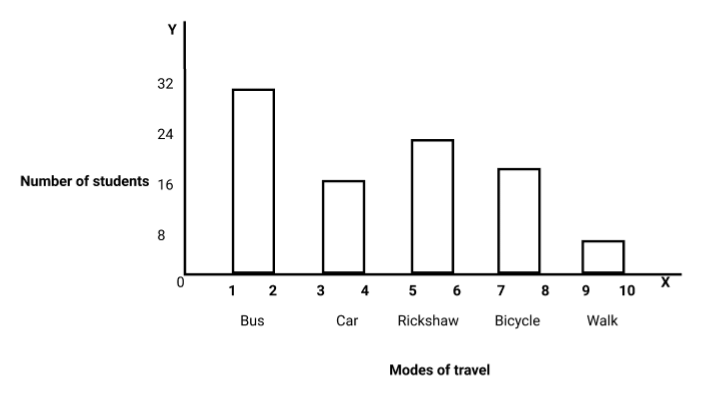
Maximum mode of travel is bus.
|
81 videos|423 docs|31 tests
|
FAQs on Introduction to Graphs Class 8 Worksheet Maths Chapter 13
| 1. What is a graph in the context of mathematics? |  |
| 2. How are graphs used in real-world applications? |  |
| 3. What are the types of graphs commonly used in mathematics? |  |
| 4. What is the importance of graph theory in computer science? |  |
| 5. How are graphs different from trees? |  |





















